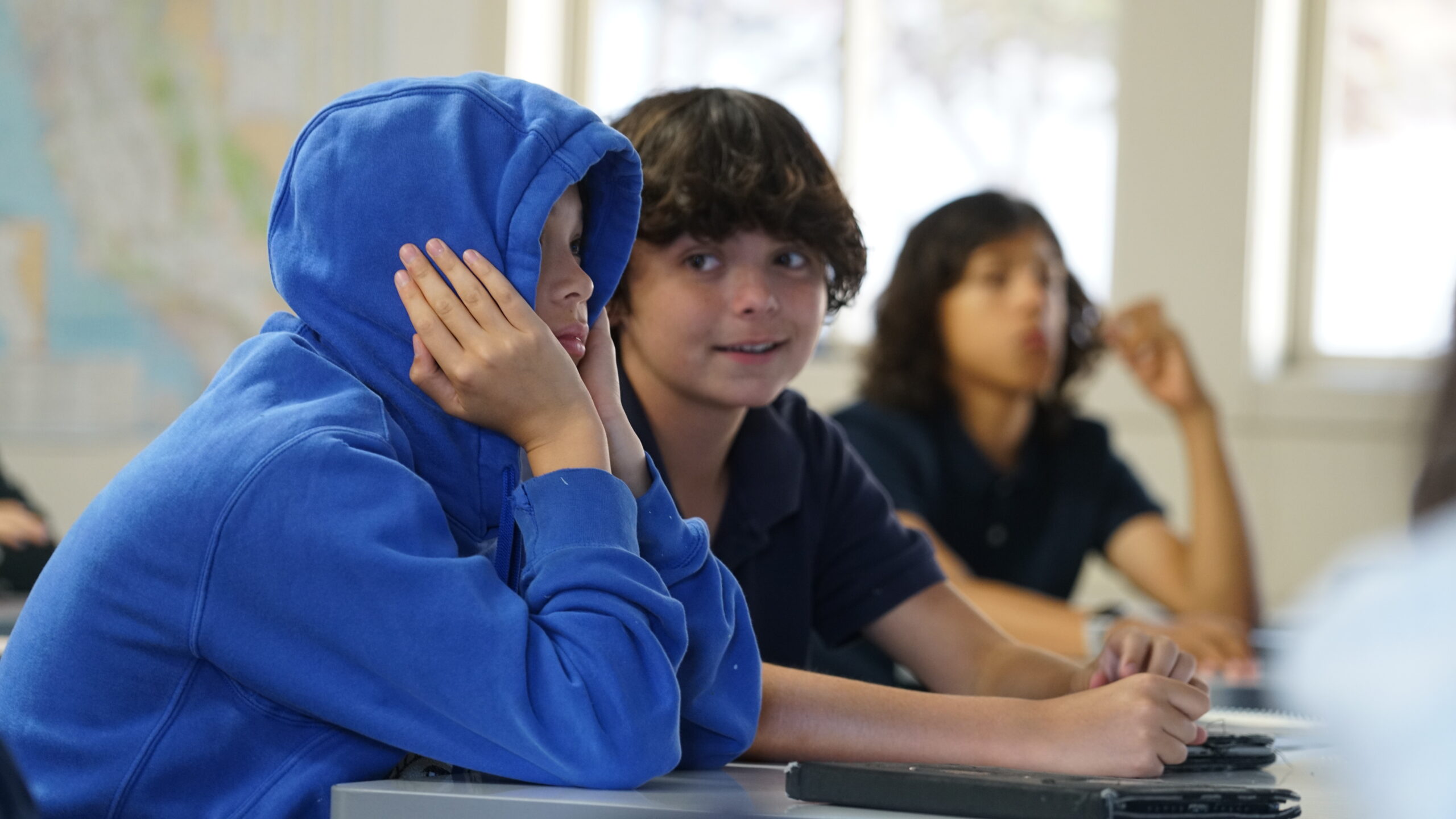Click here to listen to Episode 50: Thirteen
This morning at the 7th grade “Year Ahead” coffee I shared with parents that 7th grade is one of the hardest years in school. “For the children or the parents?” a father quipped. I paused – “Yes,” I replied.
Remember being in 7th grade? The awkwardness, the dramatic changes to your body, the intense social challenges. It’s one of the most significant periods of physical, emotional, and social change in our lives, and it leaves children feeling all types of feelings, all the time. That, in turn, makes the dynamic between parents and children increasingly complex, as we are trying to decipher what is happening, how worried should we be, and when and how should we try to help. This, of course, is happening as children are both desperately trying to assert their independence and push us away, and, just as actively, wanting and needing our love, our support, and, more practically, our ability to chauffeur them to wherever they want to go.
A few pieces of advice to help you – and your child – navigate these years. This advice, by the way, works throughout Middle School and High School, and, at least in my experience, our ability as parents to follow it and its success both increase as they grow.
First, and most importantly, don’t ride the roller coaster. Teenagers will experience an extraordinary range of emotions in incredibly short periods of time. They may be singing and dancing right after dinner, sobbing 30 minutes later, and then happily texting a friend 20 minutes after that. Amidst these ups and downs, they need us as their parents to remain steady and calm.
Second, don’t try to solve their problems for them. Instead of jumping in to take control or providing them a lengthy list of solutions, hold space for them to feel what they are feeling. Validate their emotions, coach them if they are in a space where they are open to it, and then try to step back and let them work through it. This is the only way they will develop the essential life skills and the confidence in themselves that they need to be independent, successful high schoolers and then adults.
Third, recognize that as a parent, you are often getting their worst. Your children are holding it together all day, through classes, after school activities, and all types of social interactions. Home is a place where they can fall apart. The intensity of emotions at night may, in some cases, represent serious issues and, in most cases, they simply represent the exhausted response of someone in the midst of some of the biggest changes of their lives.
Which brings me back to my opening remarks. As someone who started my career in Middle School and absolutely loves to work with this age, one of the surprises of Middle School is that they can be pretty wonderful during the day, particularly in their classes and co-curricular activities. They give us their best. If you are worried about your child, check in with us – your child’s teachers, Dean of Student Life Eden Maisel, Head of Middle School Gulliver LaValle, School Counselor Joan Young or me. We will see things you won’t see and you, of course, see things we don’t see. Together, in partnership, we can make sense of how your child is doing.
Parenting a middle schooler is not for the faint of heart and, yet, as someone who has gone through it as a parent three times and who has seen thousands of children go through these years as an educator, I encourage you to celebrate the periodic moments of joy along the way AND know that the young adults that emerge on the other side are truly remarkable. It’s hard, but it’s also an extraordinary privilege to support children through these years. I wouldn’t trade it for anything in the world.

